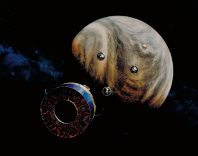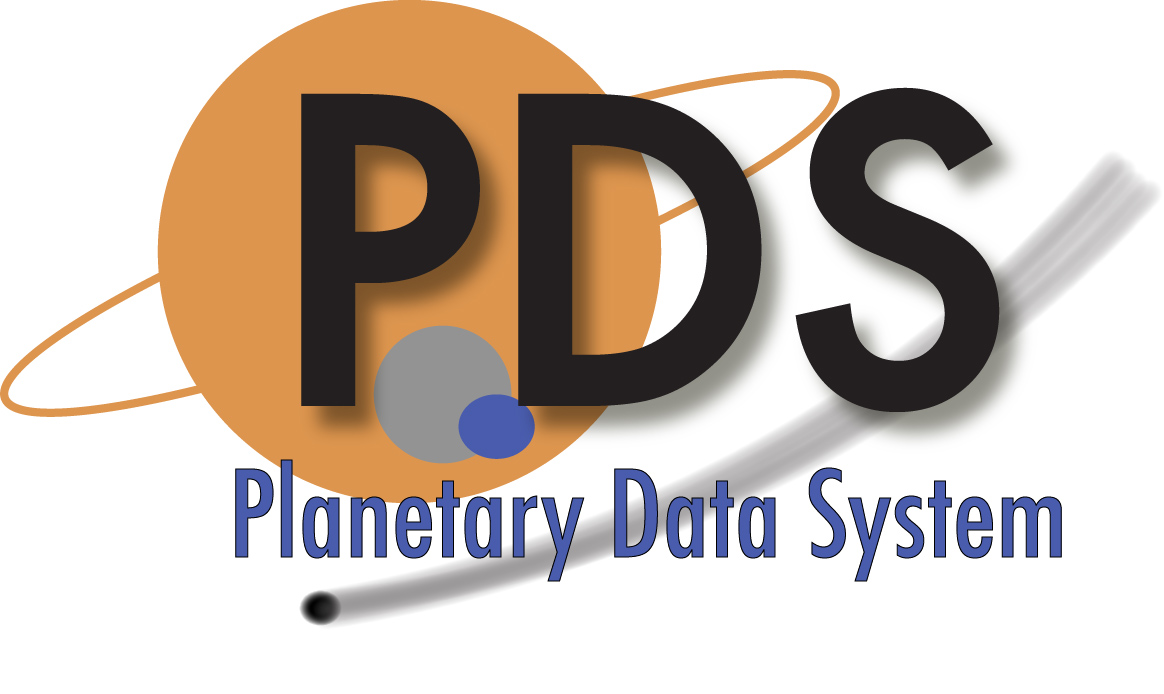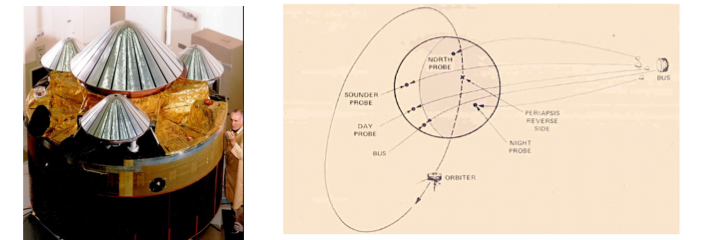
Introduction
The Pioneer Venus multiprobes and orbiter investigated Venus before rigorous archiving was an integral part of a NASA mission. As a result, no systematic archive of raw, calibrated and derived products was preserved. Some data was preserved in NSSDCA and recent (2024) recovery efforts have made the data more accessible as a PDS4 bundle. The NSSDCA help page provides more information about the Pioneer Venus Special Events Data.
The Pioneer Venus Mission consisted of two major parts: the multiprobes and an orbiter. The multiprobes consisted of the carrier or Bus (290 kg); Sounder, a large probe (315 kg) and 3 smaller probes (90 kg each). The probes were launched on August 8, 1978 and reached Venus on December 9, 1978. Sounder was released from the Bus on November 15, 1978, followed by 3 smaller probes on Nov 19, 1978.
Pioneer Venus Probes and Bus - Atmospheric Entry*
All times in UT (= EST + 5 hours) on December 9, 1978
| Large Probe | North Probe | Day Probe | Night Probe | Bus | |
|---|---|---|---|---|---|
| Entry Time (200 km) | 18:45:32 | 18:49:40 | 18:52:18 | 18:56:13 | 20:21:52 |
| Impact Time | 19:39:53 | 19:42:40 | 19:47:59 | 19:52:05 | * |
| Loss of Signal | 19:39:53 | 19:42:40 | 20:55:34 | 19:52:07 | 20:22:55 |
| Impact Latitude | 4.4 N | 59.3 N | 31.3 S | 28.7 S | (37.9 S) |
| Impact Longitude | 304.0 | 4.8 | 317.0 | 56.7 | (290.9) |
| Solar Zenith Angle | 65.7 | 108.0 | 79.9 | 150.7 | 60.7 |
| Local Venus Time | 7:38 | 3:35 | 6:46 | 0:07 | 8:30 |
| * | |||||
| *From NSSDCA collection | |||||
| **Bus signal at 110 km altitude | |||||
| *** All times in UT (= EST + 5 hours) on December 9, 1978 |
References
The initial descriptions for the mission, its goals and instrumentation is given in Space Science Reviews, 20(3), 248-354, 1977a. https://link.springer.com/journal/11214/20/3 and Space Science Reviews, 20(4), 356-525, 1977b. https://link.springer.com/journal/11214/20/4
Colin, L., Encounter with Venus, Science, 203, No. 4382, 743-745, Feb. 1979. DOI: 10.1126/science.203.4382.743/
An introduction to the JGR special issue covering results is given by Colin, L, The Pioneer Venus Program , Journal of Geophysical Research, VOL. 85, NO. A13, Pages 7575-7598, December 30, 1980, which includes a detailed bibliography. doi.org/10.1029/JA085iA13p07575
Searching for Additional Publications
The Special Events Data (SED) were originally produced by the Unified Abstract Data System (UADS). The data were submitted as EBCDIC records produced on an IBM 360 computer. They were translated into ASCII stream data without any control characters for line endings (e.g, no \r and no \n) by NSSDCA, and translated to PDS4 archive standards by NSSDCA and ATM.
The data span several separate files for a number of instruments on the Pioneer Venus orbiter (PVO) as well as the four atmospheric probes (PVMP). Descriptions of the details and formats of the different data are available in some cases as files as well as on external documentation.
The Pioneer Venus Special Events Data (SED) Bundle
See the user’s guide for the description of the data products included in this bundle.
Pioneer Venus Orbiter Data
Orbiter Atmospheric Drag (OAD) Observations and Model Data Collection
The objectives of these observations were (1) to establish the diurnal variation of thermospheric density and density scale height (2) to determine the relationship of solar wind variations to variations in atmospheric density, (3) to determine the relationship of long and short term variation in solar extreme UV radiation to density variations, (4) to search for phenomena such as a semi-annual variation and super rotation of the thermosphere, and (5) to formulate a thermospheric model for the atmosphere of Venus.
Orbiter Solar Wind Plasma Analyzer (OPA) Data Collection
Pioneer Venus Multiprobe Data
Large Probe Gas Chromatograph (LGC) Data Collection
The probe determined the composition of the lower atmosphere of Venus.
Large Probe Infrared Radiometer (LIR) Data Collection
The Probe measured the atmosphere thermal flux profile, detected cloud layers and infered their composition, and estimated the atmospheric water vapor content as it descended through the atmosphere.
Large Probe Solar Flux Radiometer (LSFR) Data Collection
This radiometer determined the regions in the atmosphere where solar energy was deposited.
Small Probes Net Flux Radiometers (SNFR) Data Collection
The objectives of the three SNFR instruments were to locate regions of radiative convergence and divergence as a function of altitude and to indicate the height at which solar energy is absorbed by the atmosphere.
Multiprobes Nephelometer (LN/SN) Data Collection
The four nephelometer experiments (designated LN on the Large Probe and SN on the Small Probes) measured the energy backscattered from cloud particles.
Multiprobes Atmospheric Structure (LAS/SAS) Data Collection
The objective of the four Atmospheric Structure experiments (designated LAS on the Large Probe and SAS on the Small Probes) was to characterize the atmosphere of Venus down to the surface at the four different entry sites.
Downloading entire Pioneer Venus Special Events Data Bundle.
Citing Datasets for Publications
PDS recommendations for citing datasets can be found here.
Seiff, A., Suomi, V. E., Barnes, A., Keating, G. M., Tomasko, M. G., Blamont, J. E., Ragent, B., Oyama, V. I., Boese, R. W.; Kirk, D. B., Young, R. E., Sommer, S. C., Blanchard, R. C. (2024), ed. Williams, D. R.; Chanover, N. J.; Won, Y.-I., McLaughlin, S. A.; Neakrease, L. D. V., Pioneer Venus Special Events Data (SED) Bundle, NASA Planetary Data System, https://doi.org/10.17189/m5zf-6f12.
 PDS: The Planetary Atmospheres Node
PDS: The Planetary Atmospheres Node


